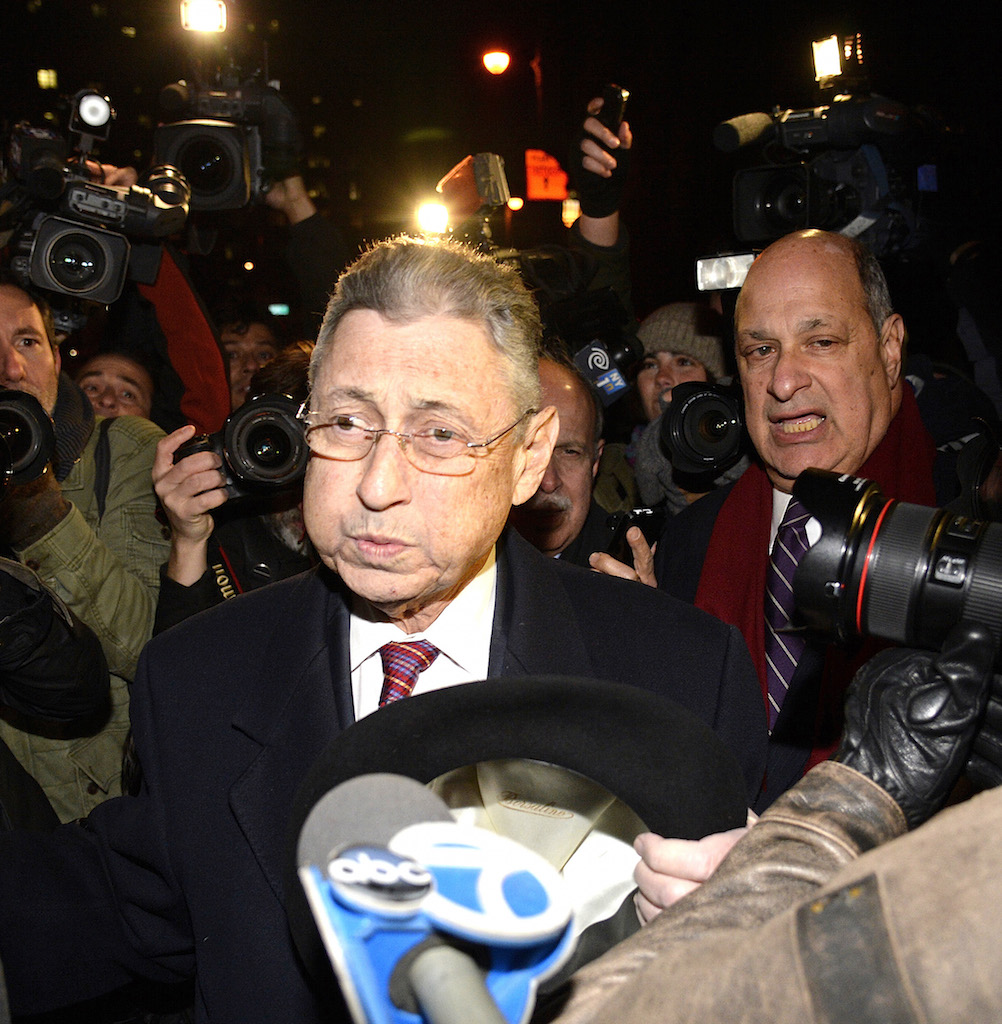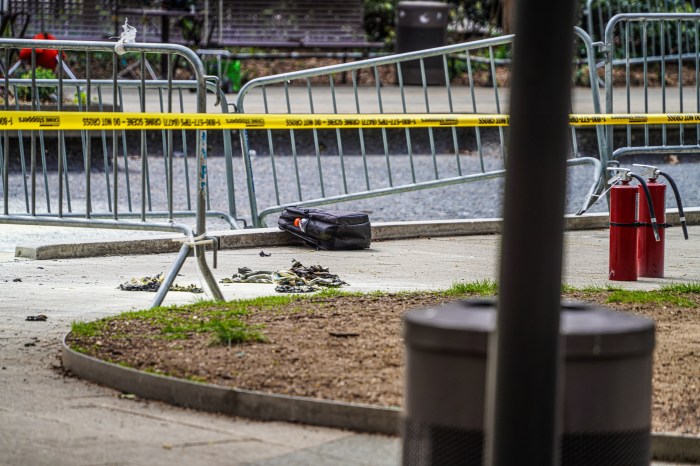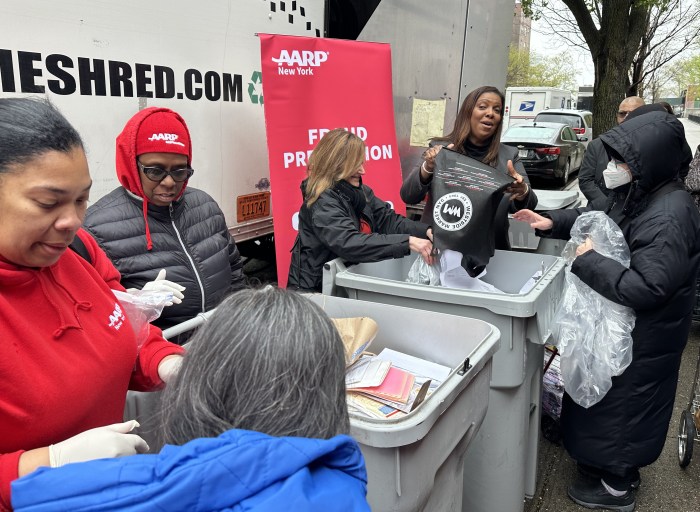
Former Assembly Speaker Sheldon Silver was swarmed by photographs and reporters as he left federal court in Lower Manhattan in November 2015, after being found guilty on all counts in his corruption trial. File photo by Jefferson Siegel
BY DENNIS LYNCH |Disgraced former Assembly Speaker Sheldon Silver was in court on Thursday to appeal his 2015 conviction on seven counts of corruption, and now the ultimate fate of a man who was once one of Albany’s most influential power brokers is in the hands of a federal judge.
The hearing on March 16 took only about an hour, but the appeals court “could take a day, or six months, or a year,” to decide on the appeal, according to Joel Cohen, one of Silver’s attorneys, with the law firm MoloLamken. Silver, now 72, is seeking either an outright dismissal or another trial.
Now-former U.S. Attorney Preet Bharara charged Silver in two schemes. In one, Silver directed half a million dollars in state research funds to a mesothelioma doctor who was referring his patients to Silver’s law firm for potentially lucrative lawsuits. In addition, Silver referred two major real estate firms to a law firm he did no lawyering for but from which he received large fees. Silver netted roughly $4 million in total through the two arrangements.
Silver’s lawyers argued on Thursday that the former power broker’s trial-court judge wrongly told the jury that Silver’s actions constituted an “official act,” and that the faulty instruction led to his conviction. His attorneys said he did not break the law because he never engaged in a quid pro quo action — meaning, a direct exchange of a political favor for money — in either situation.
They based their argument on the outcome of a 2016 Supreme Court appeal that overturned a similar conviction handed down against former Virginia Governor Robert McDonnell and his wife, Maureen.
A jury had convicted McDonnell of accepting gifts and loans from the owner of a dietary-supplement company, in exchange for help getting the state’s public universities to study one of the company’s products.
McDonnell set up meetings and events and contacted other public officials on behalf of that effort, which federal prosecutors argued constituted an “official act” within the official capacity of McDonnell’s office. However, the U.S. Supreme Court said the judge in that case, in fact, gave the jury what ended up being an “erroneous” definition of an official act. As a result, the Supreme Court overturned the conviction by clarifying the term as not applying to McDonnell’s actions.
Based on that ruling, in order to get a conviction, prosecutors must now prove that a public official pressured or advised on some payout or scheme. Silver’s lawyers similarly argued that what he was accused of doing did not constitute an official act. Silver was not convicted on the same charges as McDonnell, however.
The septuagenarian former pol faces 12 years in prison if the appeals court upholds his conviction. If served in full, that sentence could mean Silver would spend the rest of his life behind bars.
Silver was the leader of the Assembly from 1994 to his conviction in 2015, serving as speaker under five governors — including father and son Mario and Andrew Cuomo. He represented Lower Manhattan in the state body from 1977 until being convicted on federal fraud charges, at which point he was immediately stripped of his office.
Silver offered an emotional post-conviction apology in a letter a month before he was sentenced, saying that he had “failed the people of New York.”
Because of me,” Silver wrote, “the government has been ridiculed. I let my peers down, I let the people of the state down, and I let down my constituents — the people of Lower Manhattan that I live among and fought for. They deserve better,” the letter said, according to The New York Times.
The McDonnell ruling could have a wide-ranging impact on corruption cases around the country, since it raises the burden of proof that prosecutors must prove to secure a conviction, according to legal experts.

















